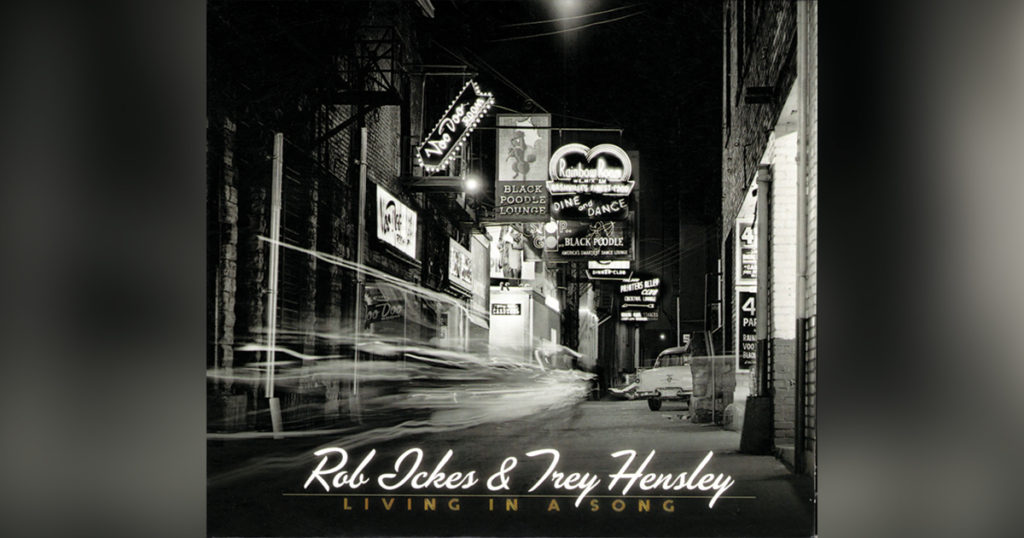Livin’ In A Song
This celebrated duo is amazingly tight, seamless, self-contained and has just about everything going for it. Ickes, of course, is one of the all-time masters of the Dobro and has spent decades as one of Nashville’s most in-demand session players. The co-founder and long-time member of Blue Highway garnered enough awards over the years—including a mere 15 IBMA “Dobro Player of the Year” citations—to fill a club cellar.
Ickes’ younger partner Hensley began his professional career as a child prodigy, appearing on The Grand Ole Opry with Earl Scruggs and Marty Stuart at age 11. In the years since, he as dramatically sharpened his chops as a singer and guitarist. He has a rich and subtle baritone that conveys all sorts of emotional nuances and often brings to mind the likes of Keith Whitely and Lefty Frizzell. And he’s such a dazzling guitar player that you wonder how he does it without his fingers leaving his hands.
On this, their fourth album, Ickes and Hensley have cowritten the majority of the tunes, which cover a substantial stylistic range. On several cuts, veteran producer Brent Maher also shares a cowrite.
In addition to the compelling original material, there is also an exhilarating reprise of A.P. Carter’s “I’m Working on A Building” that ushers this classic gospel ode into the 21st century while retaining its timeless spiritual integrity. Stuart Duncan adds some masterful fiddle licks
“I Thought I Saw A Carpenter” (cowritten by Ickes, Hensley and Maher) is another fervent gospel outing inspired by some of the last words Ickes’ father uttered on his deathbed.
“I’ve Given All I Can Take” is a wrenching honky-tonk number where Hensley’s bravado lead vocal clearly brings Keith Whitely to mind. “Is the World Still Turning” packs a similar punch. The title tune (Ickes-Hensley) is the haunted tale of a man chasing his musical dreams down a dark and increasingly desolate highway. The boys also turn in an inspired dust-off of Doc Watson’s half-century-old version of the tragic “Way Downtown,” which has a similarly theme of dreams unfulfilled.
On a breezier side is a jaunty Cajun-flavored excursion called “My Louisiana Woman” (Ickes-Hensley) and “Thanks,” an upbeat romantic pledge with a super-catchy arrangement. All throughout these 12 cuts, Maher brings an added sheen of rootsy authenticity, much like he brought to some many of The Judds’ biggest hits.

